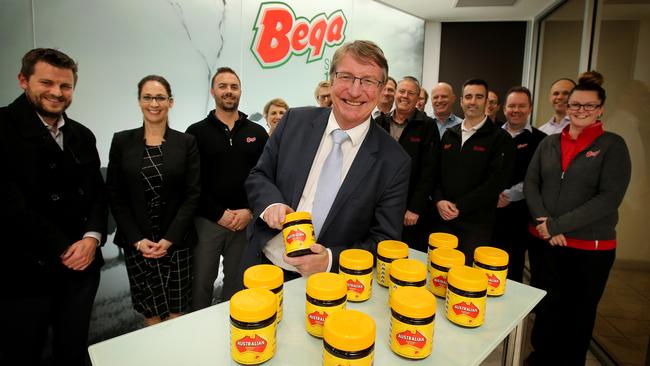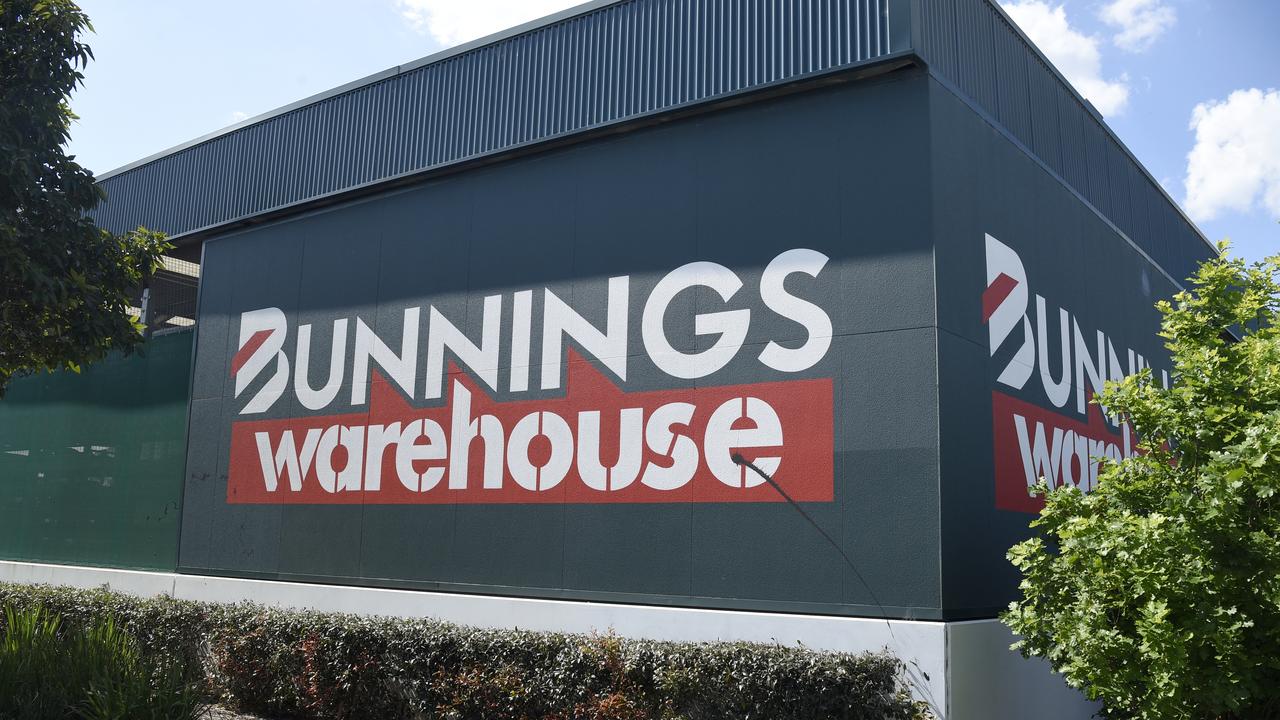Bega pays price for defending peanut butter on two fronts
Vegemite may put a rose in every cheek, but peanut butter, it seems, has the opposite effect for Bega Cheese.

Vegemite may put a rose in every cheek, but peanut butter, it seems, has the opposite effect as Bega Cheese fights legal battles on two fronts, wiping $9.5m off its half-year earnings.
Bega is fighting global food giant Kraft, which is appealing against a Federal Court decision that allowed Bega to continue to use the branding, colours and style of the classic jar of Kraft Peanut Butter.
And Bega is also fighting the world’s biggest milk exporter, Fonterra, after the New Zealand company claimed the use of Bega’s logo on that same peanut butter jar contravened a licensing deal the pair struck in 2002.
“Obviously we are in a period where we are in court where costs are high and no doubt we will have a period of hiatus until we get a ruling,” Bega executive chairman Barry Irvin told The Australian.
The legal bill came as Bega’s underlying profit fell 21 per cent to $15m for the six months to December 31. Further weighing on earnings was a cut in milk supply as farmers combat drought and a softening on the infant formula market in China.
Bega aimed to mitigate dairy price volatility when it acquired most of Kraft’s Australian food operations, including Vegemite, for $460m in 2017. While it saw Vegemite as a stable earnings generator, with sales firming 0.8 per cent in the half year to December, peanut butter was a different story.
“We didn’t expect Vegemite to grow substantially but knew it would be very stable. But with peanut butter we did see genuine growth opportunities,” Mr Irvin said.
“We knew that this spread business that we were buying had a link back to dairy as well, was a very stable product at its core and a natural product that was good for you.”
That said, Bega is hoping to lift Vegemite sales after it launched a gluten-free option and an advertising blitz with world tennis No 1 Ash Barty, as well as a 40 per cent reduced salt version.
And despite the costly court battles, Mr Irvin is committed to the company’s diversification strategy, particularly as the nation’s milk pool continues to shrink as farmers battle drought or leave the industry completely.
Australia’s overall milk production has fallen from 9.3 billion litres in 2017-18 to 8.7 billion litres last year, while Bega’s milk intake fell 13 per cent in the half year to December.
Total production decreased 10.4 per cent to 154,000 tonnes.
Mr Irvin said the coronavirus outbreak had softened demand for global dairy commodities, which had declined about 10 per cent. Still, he maintained guidance from Bega’s second profit warning last October of full-year earnings between $95m and $105m.
He said the uncertainty around coronavirus had not materially affected Bega’s operations and global dairy demand was returning to levels not seen since 2014.
“I’ve long had the view that between 2015 and 2020 would be particularly difficult because the production caps that had been in place for almost two generations were coming off in Europe, which was going to see all that pent-up ability to supply suddenly be released,” he said.
“It almost stopped price improvement in its tracks and it was always going to take supply and demand to get back to a more equal level.
“Part of my more optimistic outlook is you now see global supply and demand in good balance and you can see global demand continuing to grow. And if you’re on the supply side, that’s a good place to be.”
But Mr Irvin said it would take a few seasons of continued global price improvement to reignite confidence among farmers to step up production.
Morgans analyst Belinda Moore said the half-year result was in line with forecasts. “We were expecting a weak result,” she said.
“There is excess dairy manufacturing capacity out there at the moment. It’s a highly competitive environment where all suppliers are paying a high price for milk to get it through their factories.
“Essentially everyone is overpaying for milk.”
The company will pay a dividend of 5c a share on April 3, down 5c. Bega shares fell 4c to $4.01.




To join the conversation, please log in. Don't have an account? Register
Join the conversation, you are commenting as Logout